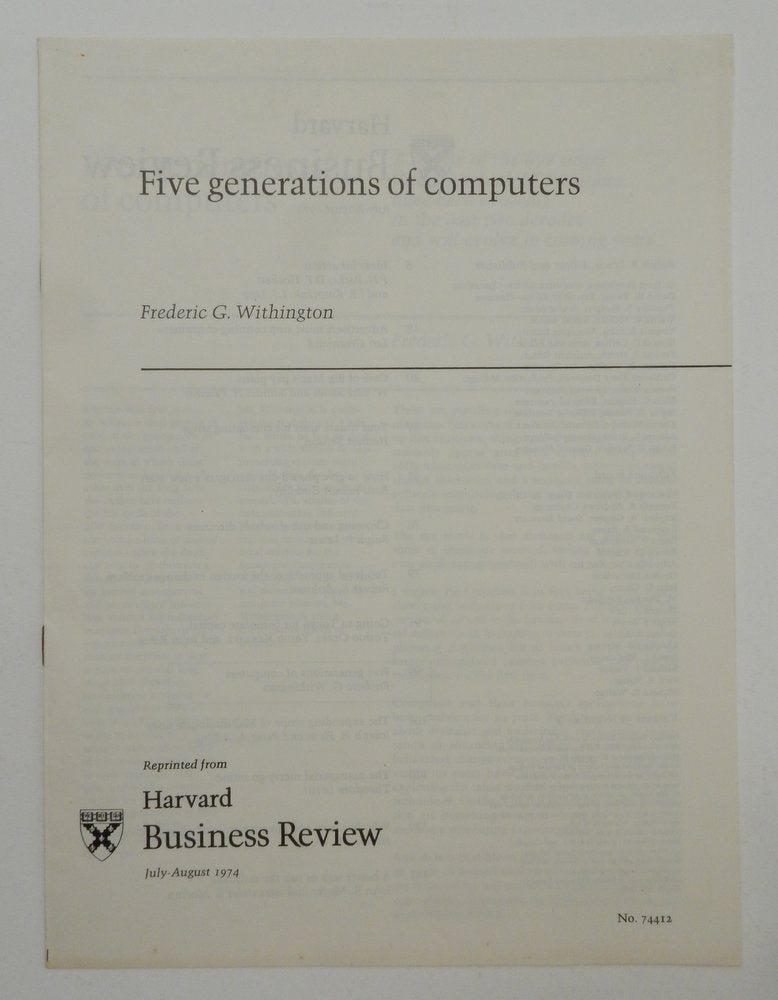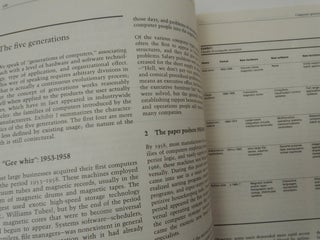Five generations of computers
[ Cambridge, MA ]: Harvard Business Review / Graduate School of Business Administration, Harvard University 1974. [2], 99-108 pages. 8 1/4 x 11 inches. Self wrappers, stapled. Bright clean example. Near Fine. Wraps. [27236]
"A review of the five stages through which EDP systems have been evolving in the past two decades and will evolve in coming years." A reprint from the Harvard Business Review July-August 1974. While not stated, we suspect that these were produced in some quantity and distributed for classwork as well as for business training exercises.
EDP, or Electronic Data Processing is used to distinguish data processing done by a computer versus that done by humans (DP, or Data Processing). It started to be used in the late 1950s/early 1960s. Mr. Withington, a consultant at Arthur D. Little, endeavors to try and calm down managers who are going nuts in the mid-1970s over all that is happening in EDP by communicating a five stage business cycle for EDP. It is an interesting assessment, starting with the Gee whiz era (1953-1958), where technologists handle most everything and employees area afraid of automation. It ends with Action aids (c1982) where he is projecting that semi-automatic operating decisions begin and management by consensus starts to appear. Published in the July-August 1974 issue of the Harvard Business Review it is clearly an issue of concern to many, and an interesting read (as are most projections with the aid of real history versus a best guess about the future).
Provenance: The collection of Armand E Adams, manager for community relations for Sperry Rand Corp, Univac Division, Blue Bell PA. Adams was one of 25 people interviewed at the UNIVAC Conference in May 1990 (Charles Babbage Institute) who was "fundamentally involved with the development and use of the UNIVAC." (Yost, A Bibliographic Guide to Resources in Scientific Computing, 1945-1975).
ITEM SOLD



